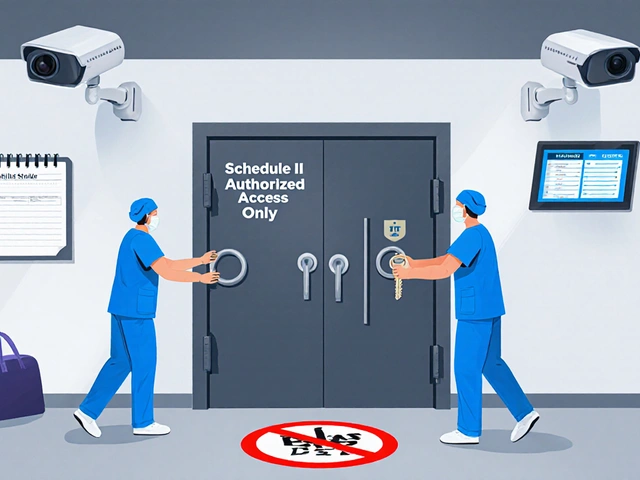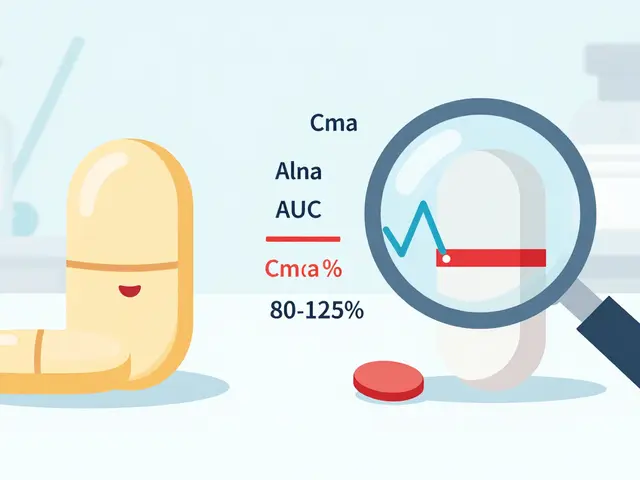Chronic Disease: Practical Tips & Medication Guides
If you or someone you know lives with a chronic disease, you’ve probably heard a lot of medical jargon and feel overwhelmed by the constant decisions. Don’t worry – you don’t have to be a doctor to manage your health. This page breaks down the most common conditions, highlights key meds, and gives you everyday actions that actually work.
Common Chronic Conditions You’ll See
Most people think of diabetes, heart disease, and arthritis first. Those three cover a big chunk of doctor visits and prescription bills. Diabetes means your blood sugar is out of balance, so you’ll need to watch food, test levels, and possibly use insulin or oral meds. Heart disease can show up as high blood pressure, clogged arteries, or irregular beats – lifestyle changes and drugs like beta‑blockers or statins keep things in check. Arthritis, especially osteoarthritis and rheumatoid arthritis, brings joint pain that often needs NSAIDs, stronger pain relievers, or disease‑modifying drugs.
Other big players are asthma, chronic obstructive pulmonary disease (COPD), and chronic kidney disease. Asthma attacks happen when the airways tighten; inhalers and sometimes oral steroids help. COPD is a slower, harder‑to‑reverse version of lung damage – bronchodilators and oxygen therapy are common. Kidney disease means the kidneys can’t filter waste well, so you’ll hear about low‑protein diets and medicines that protect kidney function.
Managing Medications Safely
When you have a chronic illness, you’ll probably be on more than one medication. The key is to keep a simple routine. Use a pillbox, set phone alarms, and keep a list of every drug, dose, and why you take it. Always read the label for possible side effects – some meds can cause nausea, dizziness, or interact with over‑the‑counter pain relievers.
Talk to your pharmacist before adding any new supplement. For example, many people with heart disease take aspirin for blood thinning, but mixing it with certain NSAIDs can increase bleeding risk. If you’re on blood thinners like warfarin (Coumadin), watch your vitamin K intake and get regular blood tests to keep the dose right.
When you travel or need a refill, order from a reputable online pharmacy that requires a prescription. Look for sites that show a pharmacist’s license, secure checkout, and clear return policies. Avoid any shop that offers prescription meds without a doctor’s note – it’s a red flag for fake or unsafe drugs.
Don’t skip regular check‑ups. Even if you feel fine, labs and doctor visits catch problems early. Bring your medication list to every appointment and ask if any dose needs adjusting.
Beyond pills, lifestyle changes boost your treatment plan. Small steps like walking 20 minutes a day, swapping sugary drinks for water, and getting enough sleep make a huge difference. If you have diabetes, checking your blood sugar before meals and adjusting food portions helps avoid spikes.
Finally, lean on support groups or online communities. Sharing tips with people who face the same condition can reveal tricks you haven’t tried – like a favorite low‑impact exercise for arthritis or a simple breathing technique for asthma.
Living with a chronic disease isn’t easy, but with the right info and habits, you can stay in control. Keep this guide handy, revisit it when you add a new medication, and remember that small, consistent actions add up to big health gains.
Alcohol can have complex effects on inflammation and health. While a glass of wine might sound relaxing, its impact on your body's inflammatory processes can vary widely. Excessive drinking can lead to increased inflammation, contributing to a range of chronic diseases. Understanding how alcohol interacts with your body's immune system is crucial for making informed choices. Balancing consumption and knowing its effects can help maintain optimal health.
Categories
Archives
Recent-posts
How to Store Controlled Substances to Prevent Diversion: A Practical Guide for Healthcare Facilities
Nov, 16 2025



 Medications
Medications




